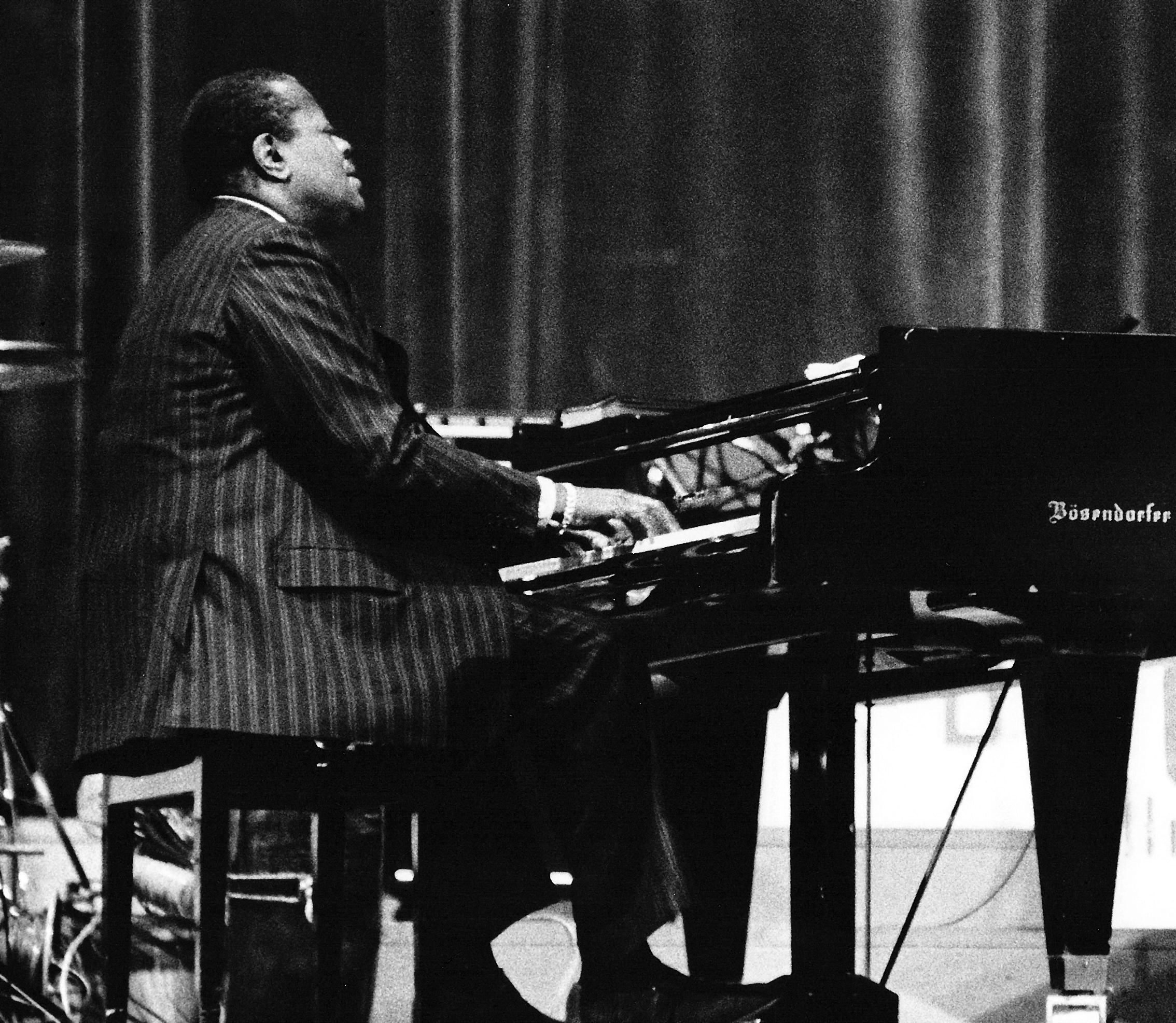Oscar Peterson
It is a fact that many great jazz pianists play on Bösendorfe grand pianos. The most significant is probably the Canadian jazz-virtuoso Oscar Peterson, born in 1925. When he talks about his encounter with the Imperial, it sounds like a love story:
I ran across a lot of European pianos in my JATP years. The two I remember best were a lovely instrument in Denmark made by Hornung and Mueller and the Viennese-made Bösendorfer. Sadly, the former piano did not prosper in the Canadian atmosphere, refusing to retain its tuning, and despite its lovely feel, I was forced to part with it. But the Bösendorfer was something else - especially the one I encountered in the late 1970s. This piano was called 'The Imperial'. At the end of the set I walked off during the applause and went straight over to Norman Granz (Oscar Peterson's manager and promoter of Jazz at the Philharmonic) frightening him out of his wits by screaming:

Oscar Peterson 1977 in Munich
"God-dammit, Norman, where did that box come from? I gotta have one of those!"
He looked at me with his normal calm and replied:
"If you like it so much, why don't you go back and play a couple of encores on it?"
I duly complied:
"In fact, we played at least four encores, for I couldn't get enough of that piano and, that night at least, could do no wrong on it."
My bassist Niels Pedersen's only remark was: "Damn! Why did they have to send you such a good piano? Now we're paying for it, because you're never going to leave!"
He was almost right. Normally, unless it's absolutely necessary - a sound-checks in a studio, for example - I seldom go out on stage before a concert. Checking out the piano might lead to preconditioned ideas, and they can in turn interfere with the creative process so essential to a successful jazz concert. By the same token, I would hardly return to play after a concert was over, feeling that I had said all I had to say during the concert. But that night in Vienna was different. I stalled around until the audience had gone, then virtually sprinted back to the piano to bask once more in its incredible tonal quality.
On my next visit to Vienna I was picked up at the hotel and driven to what had been an old monastery in the heart of the city. Our party was given a tour of the whole manufacturing process, from where the piano is born to where it comes to completition. Finally we were ushered into the piano salon. This was it! Before me stood an array of 15 to 20 grands - and I mean grands! They were akin to a herd of beautiful Arabian horses, waiting to be chosen for their unique individual qualities. I was told to start trying them, one after the other, in order to isolate my final preference. It was truly unbelievable: instrument after instrument offered itself to me in an unselfish, fulfilling way, each one speaking with its own special voice. I glanced at Norman with what must have been a look of bewilderment and awe, for he strolled over and said quitely:
" Take your time, OP, you don't even have to make your choice today. If you can't decide, you can easily come back after the tour and choose then."
Suddenly I touched this one instrument, and it spoke to me in a way I'd never heard before: the sound seemed to run through my fingers, straight up my arms and into my whole body: 'This is mine!' I shouted in excitement. 'This is the one!'
All I knew was that I had found the most beautiful instrument I had ever played and I wanted to make it mine. My heart pounded within me as they agreed on my choice and that, after final checks and tunings, they would ship it to me in Toronto.
*Source: Oscar Peterson, A Jazz Odyssey, Continuum, London/New York, 2002